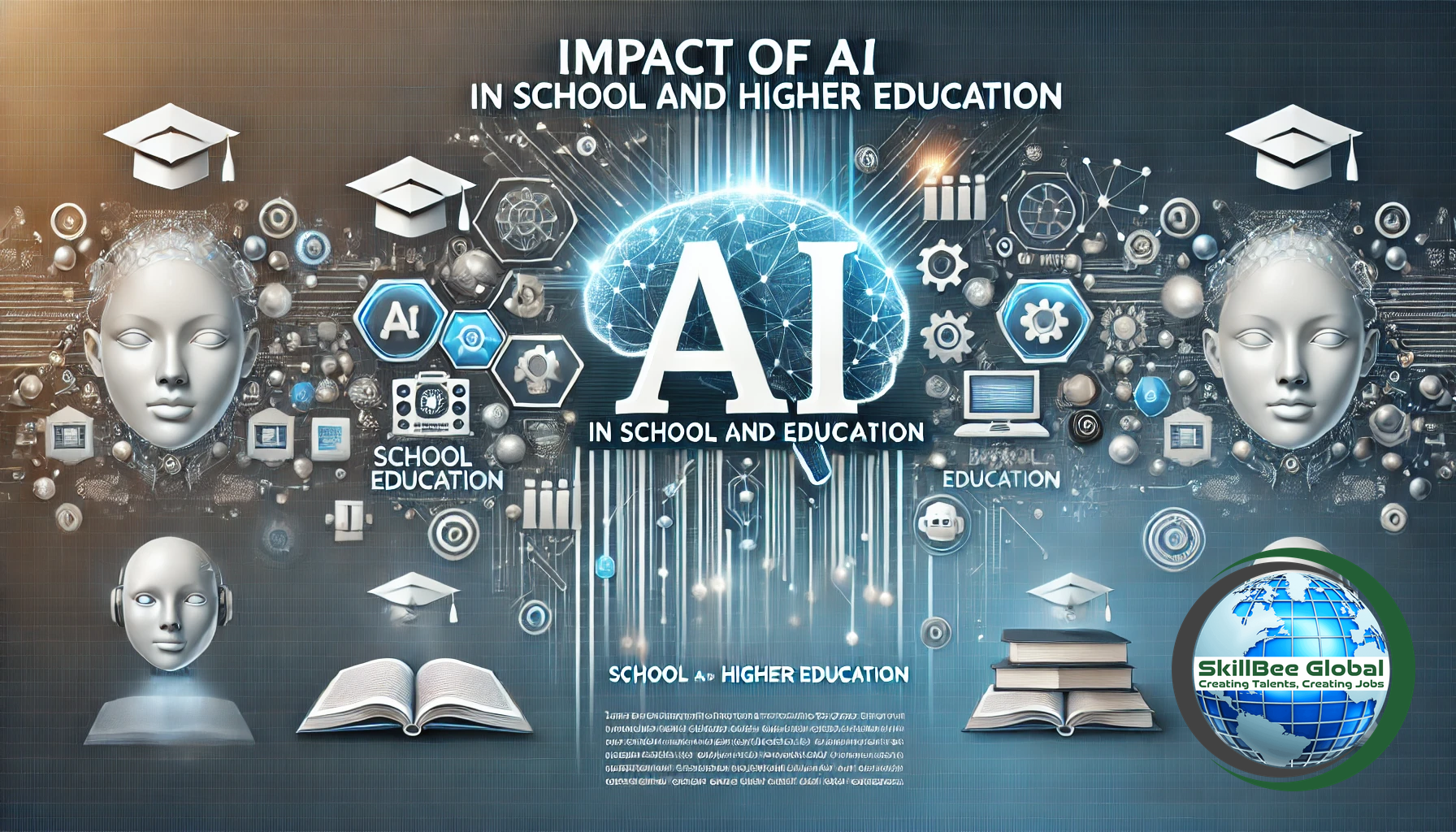
IMPACT OF AI IN SCHOOL AND HIGHER EDUCATION
SCHOOL EDUCATION
Artificial intelligence (AI) has the potential to transform the way school education is delivered and can bring several benefits to the sector. Here are some ways in which AI can benefit school education:
1. Personalized Learning: AI can help teachers customize learning experiences for individual students based on their learning style, pace, and preferences. AI can analyse student data and provide personalized recommendations for learning activities, resources, and assessments.
2. Intelligent Tutoring Systems: AI-powered intelligent tutoring systems can provide real-time feedback and guidance to students, helping them improve their skills and knowledge. These systems can also track student progress and provide data-driven insights to teachers.
3. Automated Grading: AI can automate routine tasks such as grading, providing teachers with more time to focus on teaching and interacting with students. This can also reduce the subjectivity of grading and improve the consistency of assessments.
4. Predictive Analytics: AI can analyse student data and predict which students are at risk of falling behind or dropping out. Teachers can use this information to provide targeted interventions and support to those students.
5. Virtual Assistants: AI-powered virtual assistants can help students with their homework, answer their questions, and provide them with additional resources. These assistants can also provide feedback and suggestions for improvement. Overall, the use of AI in school education can enhance the learning experience for students, improve teacher effectiveness, and increase student engagement and achievement.
However, it is important to ensure that the use of AI in education is ethical, transparent, and inclusive.
HIGHER EDUCATION
What will be the intervention of AI in higher education in universities?
Artificial intelligence (AI) has the potential to transform higher education in universities in several ways. Here are some of the ways in which AI can intervene in higher education in universities:
1. Personalized Learning: AI can help universities tailor learning experiences for individual students based on their learning styles, aptitudes, and preferences. AI can analyse student data and provide personalized recommendations for learning activities, resources, and assessments.
2. Intelligent Tutoring Systems: AI-powered intelligent tutoring systems can provide real-time feedback and guidance to students, helping them improve their skills and knowledge. These systems can also track student progress and provide data-driven insights to teachers.
3. Research Assistance: AI can help researchers in universities sift through large amounts of data quickly, identify trends, and generate insights. AI-powered tools can also help researchers with tasks such as data analysis, literature reviews, and writing.
4. Administrative Tasks: AI can automate routine administrative tasks such as admissions, registration, and grading, freeing up staff to focus on more complex tasks and student engagement.
5. Campus Safety: AI can help enhance campus safety by analysing data from security systems and identifying anomalies and potential threats. AI can also be used to monitor student behaviour and identify potential mental health issues.
6. Online Learning: AI can help universities improve online learning experiences for students. AI-powered tools can analyse data on student engagement, identify areas where students are struggling, and provide targeted feedback and support.
Overall, the intervention of AI in higher education in universities has the potential to enhance the learning experience for students, improve research productivity, and streamline administrative tasks. However, it is important to ensure that the use of AI is ethical, transparent, and inclusive.
Chinnappan Paul
Educational Consultant & Business Strategist
Comments (0)
Categories
Recent posts


Upskilling Employees -Top 10 Benefits ...
8 Aug 2024
Projected Hiring Trends in 2025 Indian ...
11 Mar 2025
The Importance of Skill Education: A ...
8 Aug 2024




